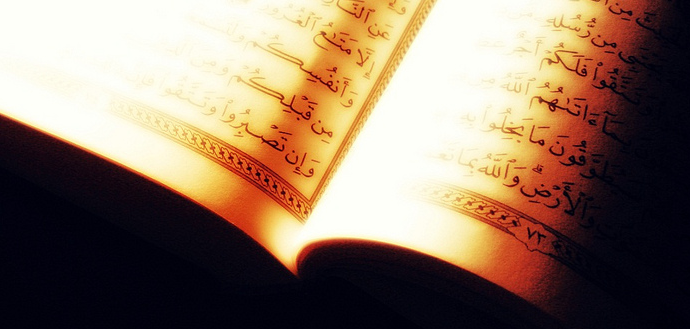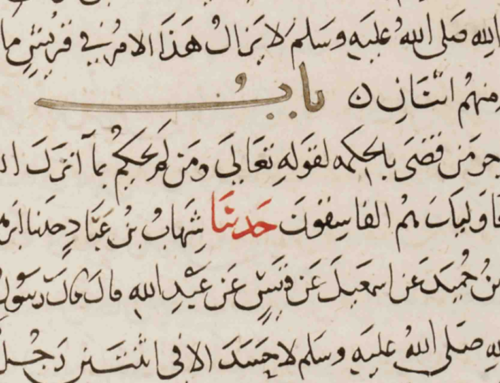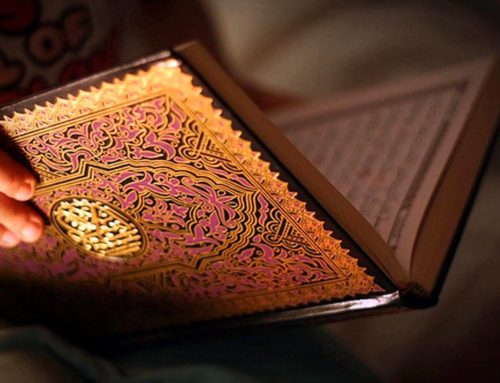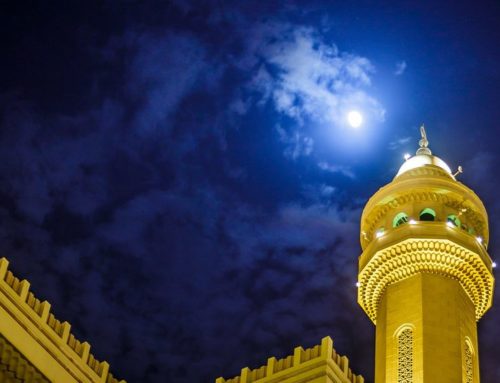Translated by Muhammad Hamood
“He (Allah Most High) then firmly established (istawa) Himself over the Throne” (Qur’an 7:54) means He firmly established Himself over the Kingly Throne and began decreeing orders (ahkams) in the heavens and the earth. In the tafsir (exegesis) of [the verse] “He then firmly established Himself over the Throne”, it is safer to adopt silence in agreement with the methodology of the salaf (pious predecessors) and that is also my view although the muta’akhirin (scholars of the later generations) have opened the doors for ta’wil (interpretation).
The ta’wil which has been done in this place is extremely latif (delicate), the gist of which is that [the act of] being seated on the throne is figuratively used to express the decreeing of orders and the administrating of affairs. Hence, it is said that following a certain king, such a person sat on the throne. This is even if he still has not had the opportunity to sit on the [physical] throne. The meaning of this statement is that after the king this person became ruler and took the administration of the kingdom in his hands. This same usage has been used in the Qur’an, where the intended meaning is that Allah Most High, having brought the heavens and the earth etc. into existence, began decreeing orders and administrating over affairs .
In another verse, istawa ‘ala al-‘arsh [1]Translation: Firmly established (istawa) Himself over (‘ala) the Throne (al-‘arsh) is followed by [the words] yudabbir al-amr [he administers the affairs] , which can be considered the exegesis of istawa ‘ala al-‘arsh which in turn corroborates this ta’wil. Furthermore, in this verse, istawa ‘ala al-‘arsh is followed by the verse: “He covers the day with the night that pursues it swiftly. (He created) the sun and the moon and the stars, subjugated to His command. Lo! To Him alone belong the creation and the command. Glorious is Allah, the Lord of all the worlds.” (Qur’an, 7:54). This expresses [the meaning of] administrating over affairs, after which no objection remains because Allah Most High is free from being seated on a throne.
The response to the doubt that arises from this verse is that istawa ‘ala al-‘arsh has been used figuratively such that the intended meaning is of administrating over affairs because this is the meaning of being seated on a throne that is commonly understood. Consequently, where the muta’akhirin have introduced other ta’wils they have also given consideration to this [above mentioned] ta’wil. Insha’Allah (Allah willing), this is the most latif ta’wil.
Excerpt from Tashil [2]Tashil and talkhis by Mawlana Zafar Ahmad ‘Usmani Tafsir Bayan al-Qur’an (Sura Al-A’raf, Verse 54)







JazakAllah!
For the readers who may be interested in knowing further details on this issue, it is worth mentioning that Hakim al-Umma (may Allah have mercy on him)answered to some of the objections that were raised on this explanation and he further elaborated on this topic to make his point clear.
This was published as ‘Tamheed al-farsh fi tahdeed al-arsh’ in Bawadir al-nawadir, pages 601-28 (Idarae Islamiyat, Pakistan). It is in Urdu with arabic references.
[…] ……..contd. […]
Magnificent explanation by Mawlana Ashraf Ali Thanvi sahab (rah), the best way to answer literalists (aka Salafis) is through this Glorious Ayah
Quran states: He it is Who has sent down to thee the Book: In it are verses basic or fundamental (of established meaning); they are the foundation of the Book: “OTHERS ARE ALLEGORICAL. BUT THOSE IN WHOSE “HEARTS” IS PERVERSITY FOLLOW THE PART THEREOF THAT IS ALLEGORICAL, SEEKING DISCORD” and searching for its hidden meanings, but no one knows its hidden meanings except Allah. And those who are firmly grounded in knowledge say: “We believe in the Book; the whole of it is from our Lord:” and none will grasp the Message except men of understanding. (Quran 3:7)
I think English has a similar expression to “Istawa alal Arsh.” Thus, in English, we say that the King “Ascended the throne” in such and such a year. This does not mean he physically sat on the throne at this time, rather, that he came to power / became king / began giving orders at this time.
http://en.wikipedia.org/wiki/Victoria_of_the_United_Kingdom (2nd paragraph)
http://www.oxforddictionaries.com/definition/ascend?view=uk
jazakAllah khaira
Assalamualaykum brothers,
In another Verse it is said
And it is He who created the heavens and the earth in six days – and
His Throne had been upon water {Surah Hud, 7}
In Hadeeth it is mentioned that
Narrated by Abu Said Al-Khudri
The Prophet said, “The people will fall unconscious on the Day of Resurrection, then suddenly I will see Moses holding one of the pillars of the throne.” Abu Huraira said: The Prophet said, “I will be the first person to be resurrected and will see Moses holding the throne.” [Saheeh Al-Bukhari]
A hadeeth in Sunan Ibn Majah
“The Throne is above the Firdaus”
So, it is not necessary for us to support the Taaweel.
Just because our predecessors did this and we will support it!!!